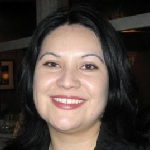Developmental area faculty

Sheri Berenbaum, Professor of Psychology and Pediatrics
sab31@psu.edu; www.personal.psu.edu/sab31
Sheri Berenbaum is interested in the development of individual differences in cognition and social behavior from a neuroscience perspective. Her research efforts are focused on the ways that sex hormones in early development and at adolescence organize the brain and behavior, and how hormonal and neural influences on behavior are mediated through the social environment. Her studies are conducted in children and adolescents with endocrine conditions resulting in atypical hormone levels, as well as typical children and adolescents. Her focus has been on characteristics that are sex-related (such as activities and interests, gender identity, sexual orientation, and spatial ability) and she is now also studying characteristics that show dramatic change in adolescence (such as risk-taking and executive function).

Alysia Blandon, Assistant Professor of Psychology
ayb10@psu.edu; familydev.psych.psu.edu
Dr. Blandon's research, framed within family systems theory and the developmental psychopathology perspective, focuses on the family processes that influence the development of children's self-regulation. She is particularly interested in exploring the associations among family level processes and the developmental trajectories of self-regulation in young children whose regulatory capacities are newly emerging and may be particularly sensitive to the family context. Currently, she is examining aspects of the marital relationship, coparenting, parenting, and sibling relationships as correlates of children's regulatory abilities. Her work focuses on multiple aspects of self-regulation including physiological, attentional, emotional, and behavioral regulation. The goal is to identify risk and protective factors that promote prosocial behavior or exacerbate children's risk for later behavior problems. Dr. Blandon is also interested in investigating the role that culture plays in shaping parenting beliefs and values, and in turn how these beliefs and values impact socialization strategies and individual differences in children's emotional and social development. Her current research project explores these family-level processes using multiple methods, including videotaped observations, heart rate reactivity, individual interviews and questionnaire data from moms, dads, and two siblings.

Kristin Buss, Professor of Psychology, Director of Parents and Children Together, Co-Director of Harrisburg Center for Healthy Child Development
kbuss@psu.edu; emotiondev.psych.psu.edu
Kristin Buss' current research focuses on identifying individual differences in affective developmental trajectories, specifically the mechanisms that underlie these individual differences. Her central research questions relate to understanding the mechanisms of emotional development with respect to developing temperament and personality. For instance, how do certain affective styles serve as protective or risk factors for mood disorders. These mechanisms are being uncovered through the use of several complementary methodologies. Her studies emphasize (1) multi-method assessment of affective behavior, (2) temperament, (3) the role of context, (4) physiological correlates, (5) neural circuitry, and (6) risk factors for development of internalizing disorders. The work Dr. Buss' lab will provide training in both the biological bases area and the emotion, temperament, and adjustment area.

Rick Gilmore, Associate Professor of Psychology
rogilmore@psu.edu; brainlab.psych.psu.edu; www.personal.psu.edu/rog1
Rick Gilmore's research examines how the mind and brain develop in infancy and early childhood. His work incorporates behavioral studies, brain imaging techniques (EEG, ERP, and visually evoked potentials or VEPs and fMRI), and computational modeling. Dr. Gilmore focuses on characterizing patterns of visual development and is particularly interested in how perceivers extract information about their own movement through space, the layout of the environment, and object shape and form from motion information. He also studies how perceptual change influences motor development, and how the achievement of motor milestones in early infancy such as crawling and walking, influence cognitive, social, and emotional functioning. Gilmore has interests in studying and characterizing individual differences in behavior and brain function, in particular, patterns of learning and memory revealed by looking time habituation. Gilmore is also a leader in a new open data-sharing project called Databrary (databrary.org). His work is funded by the National Science Foundation and the National Institutes of Health.

Lynn Liben, Distinguished Professor of Psychology; Human Development and Family Studies; and Education
liben@psu.edu; psych.la.psu.edu/LibenCSDLab/
Lynn Liben is interested in both cognitive and social development, and in their interface. Within cognitive development, her interests are focused on spatial cognition and graphic representations. For example, she studies children's growing ability to understand maps and children's developing appreciation for the aesthetic and emotional impact of photographs. Within social development, her interests are focused on gender and racial stereotypes, with particular interest in the ways that cognitive processes play a role in establishing and modifying these stereotypes. Illustrative of research combining these interests is her research on sex-related differences in performance on spatial tasks (for example, research on sex differences in infants' sensitivity to the rotation of objects and on college students' accuracy in showing objects' locations on a campus map). In addition to conducting basic research on basic cognitive and social developmental processes, Dr. Liben is also interested in how developmental theory and research can inform educational experiences that may take place in family, museum, or classroom settings. For example, she is directing one project that examines parent-child interactions in a museum exhibit on maps, asking whether these interactions differ in relation to gender and spatial skills, and another that examines how geology instruction might be modified to help college students – even those with less well-developed spatial skills – acquire basic course concepts. More detail about Dr. Liben's research interests and current projects may be found on her website.

Jenae Neiderhiser, Liberal Arts Research Professor of Psychology
jenaemn@psu.edu; psych.la.psu.edu/directory/faculty-bios/neiderhiser.html
Dr. Neiderhiser's research focuses on understanding how genes and environment work together to influence development across the lifespan. A theme of her work has been to attempt to better understand how individuals influence their environments, particularly their interpersonal relationships. She have used a number of genetically-informed strategies to achieve this goal with a particular focus on the role of parenting and gene-environment correlations and interactions.

Keith Nelson, Professor of Psychology
Keith Nelson's interests concern cognitive developmental theory and applied developmental psychology. His research involves children's acquisition and use of language and art and creative thinking. He also works with microcomputer-multimedia applications in educational research aimed at improving communication, art, and thinking in normal and handicapped children. Another facet of theorizing deals with the ways that cognition, emotion, and motivation are intertwined in children's learning. Projects are in the planning stage for interventions to bolster children's creativity and adults' creativity.
Programmatic research additionally has concerned similarities and differences in language-learning patterns across different subject groups, notably language-delayed, developmentally delayed, language-normal, autistic, and aphasic. Coupled to this are systematic experimental studies of different treatments. These sorts of systematic efforts are rare in the field of communication disorders and child language. Dr. Nelson's lab is one of a very few that has demonstrated highly specific learning conditions under experimental control that are causally associated with language acquisition gains by both language-delayed and language-typical children. A current set of projects focus on facilitating complex syntax and figurative language for children with Autism or Asperger's Syndrome. He and his students are refining both theoretical accounts of the most effective learning conditions so far and new intervention procedures for varied groups that move toward further improvement of language intervention effectiveness.

Koraly Perez-Edgar, Associate Professor of Psychology
kxp24@psu.edu; http://www.catlabpsu.com
Dr. Perez-Edgar's research focuses on the relations between temperament and psychopathology, particularly anxiety. In particular, children with the extreme temperamental trait of behavioral inhibition and shyness show increased risk for social anxiety. However, individual differences in attention mechanisms may play an important role in ameliorating or exacerbating these underlying vulnerabilities. In conducting her work, Dr. Pérez-Edgar has taken a multi-method approach involving direct observation of behavior, cognitive functioning, psychophysiology (EEG & ERP), and neuroimaging (fMRI).
Currently her work is funded by grants from the National Institute of Mental Health. Students in her lab will lead a five-year study examining the potential impact of attention training on the social, electrophysiological, and neural correlates of extreme temperament and anxious behavior in young children.

Suzy Scherf, Assistant Professor of Psychology
suzycherf@psu.edu; http://sites.psu.edu/scherflab/
My core interests lie in understanding how children form representations of the visual world and how emerging functional specificity of the developing brain supports this process. Specifically, I am interested in the developmental trajectory of face representations because the discrimination and recognition of faces is one of the most taxing perceptual challenges confronted by people in their day-to-day life. Also, faces are the pre-eminent social signal, therefore, studying developmental changes in the behavioral and brain basis of face processing in typically developing individuals and in those affected by social-emotional disorders may index a core set of developmental changes within the broader social information processing system.
My approach allows me to address some of the most pressing questions about how developmental changes in brain function and structure support changes in behavior. I employ converging methodologies, including functional and structural magnetic resonance, and diffusion tensor imaging along with detailed behavioral paradigms in both typically developing populations and those with developmental disorders, with particular emphasis on autism, to examine development across multiple time points from early childhood to adulthood. My goals are to 1) understand the mechanisms by which these representations change developmentally, particularly during adolescence when pubertal maturation has a profound influence of the re-organization of neural circuits and the processing of social information, 2) understand how cortex develops the capacity to represent and compute face representations that support multiple aspects of face processing, including face identification, categorization, and, in the future, the process of garnering social attributions from faces, 3) elucidate the consequences when psychological or neural processes deviate from the normal trajectory, and 4) develop intervention paradigms that may alter abnormal developmental trajectories in both the behavioral and neural aspects of face processing.

Janet van Hell, Professor of Psychology and Linguistics, Director of Program in Linguistics
I am interested in the cognitive and neural processes related to language development and language use. There are two broad themes to my current research. One focuses on cognitive and neural processes that enable the learning and use of multiple languages in bilinguals at different levels of proficiency. My students and I study developmental patterns of cross-language interaction and transfer related to lexical and morpho-syntactic processing, as well as neural and cognitive mechanisms involved in language-switching. We also study sign-speech bilinguals who use spatial and oral languages from two different modalities. The second research theme focuses on language development in school-aged children with typical or atypical development (including children with dyslexia or with specific language impairment, children who are deaf, and bilingual children from an ethnic minority background).

Dawn Witherspoon, Assistant Professor of Psychology
dpw14@psu.edu; http://psych.la.psu.edu/contextlab/lab.shtml
Dawn Witherspoon's research focuses on the ways in which urban and rural families and youth are influenced by the contexts in which they are embedded, particularly focusing on how neighborhood, school, and family factors affect adolescent's adjustment (i.e., academic, psycho-social, and behavioral well-being). To frame her research, Dr. Witherspoon employs a strengths-based approach to explore the co-action of environments and individuals. The crux of her research focuses on the neighborhood context and its relation to other proximal contexts for adolescents and identifies positive characteristics in multiple contexts that are related to adolescent development. In addition, Dr. Witherspoon, examines the mechanisms (e.g., racial socialization and identity) by which race and ethnicity influence development in these various contexts. Dr. Witherspoon uses both quantitative and qualitative methods to examine her research questions with diverse families. The goals of her research are to elucidate the developmental trajectories of youth from multiple environments, to identify adolescents' contextual social capital, and to understand how the lack of resources in one context may be compensated for by assets in another context.
